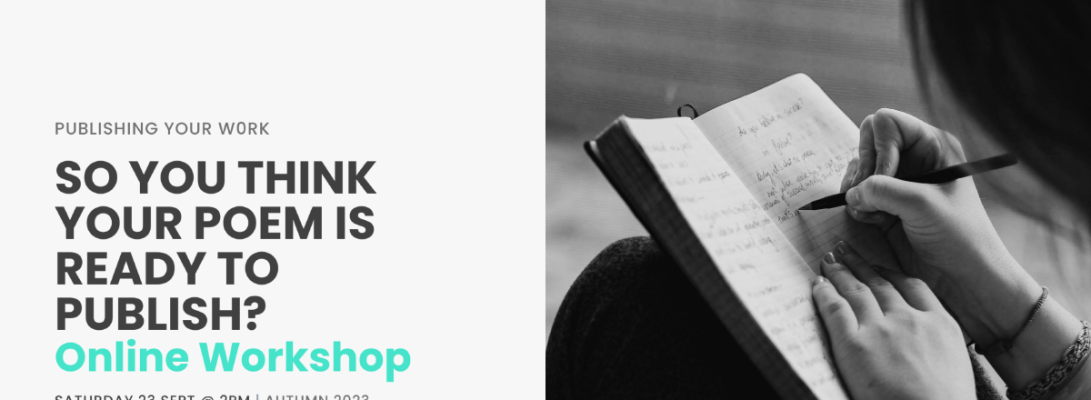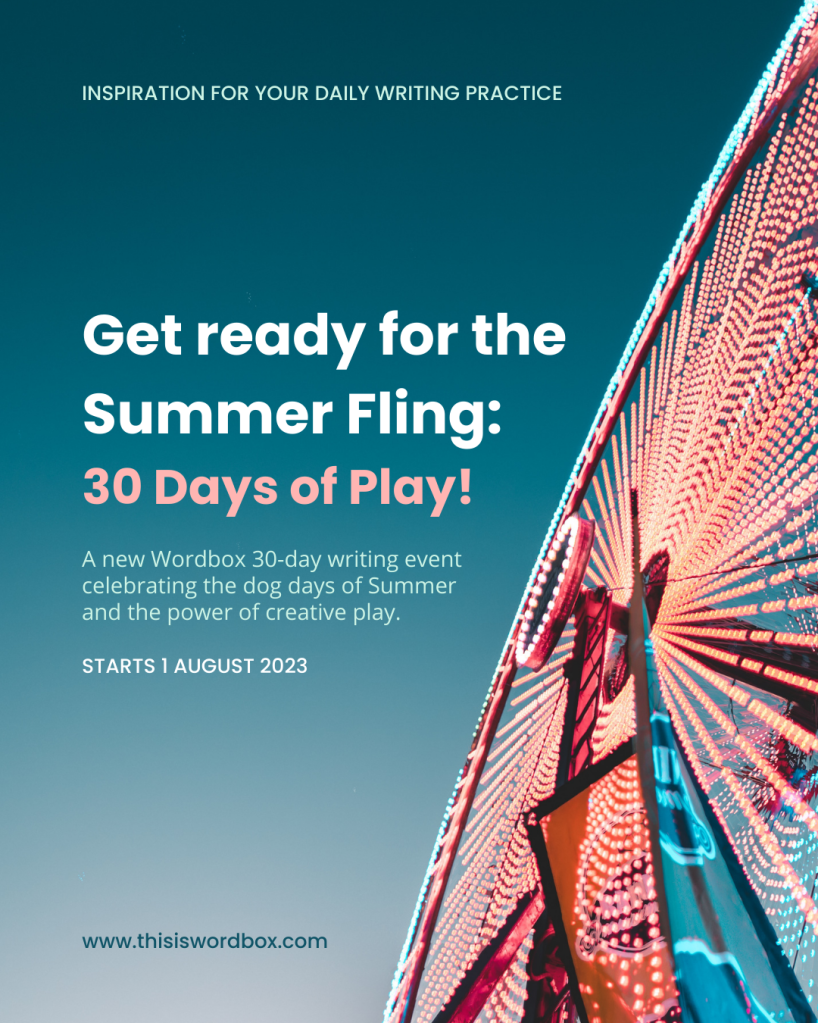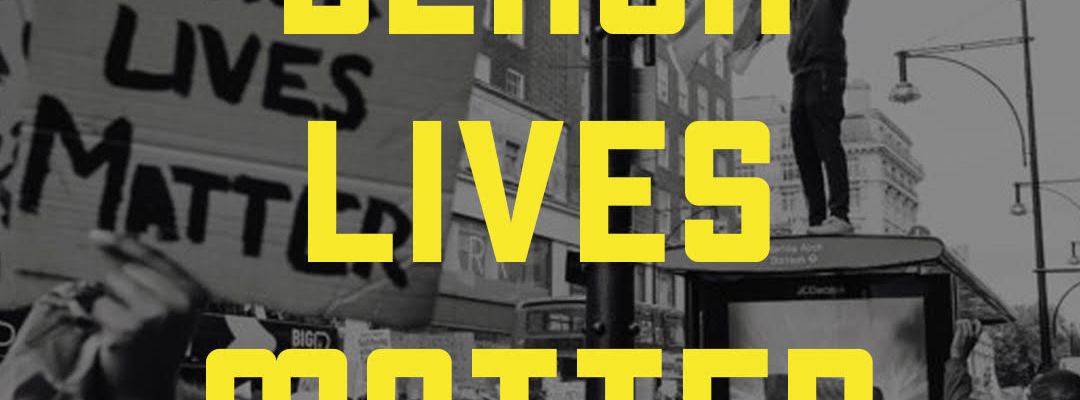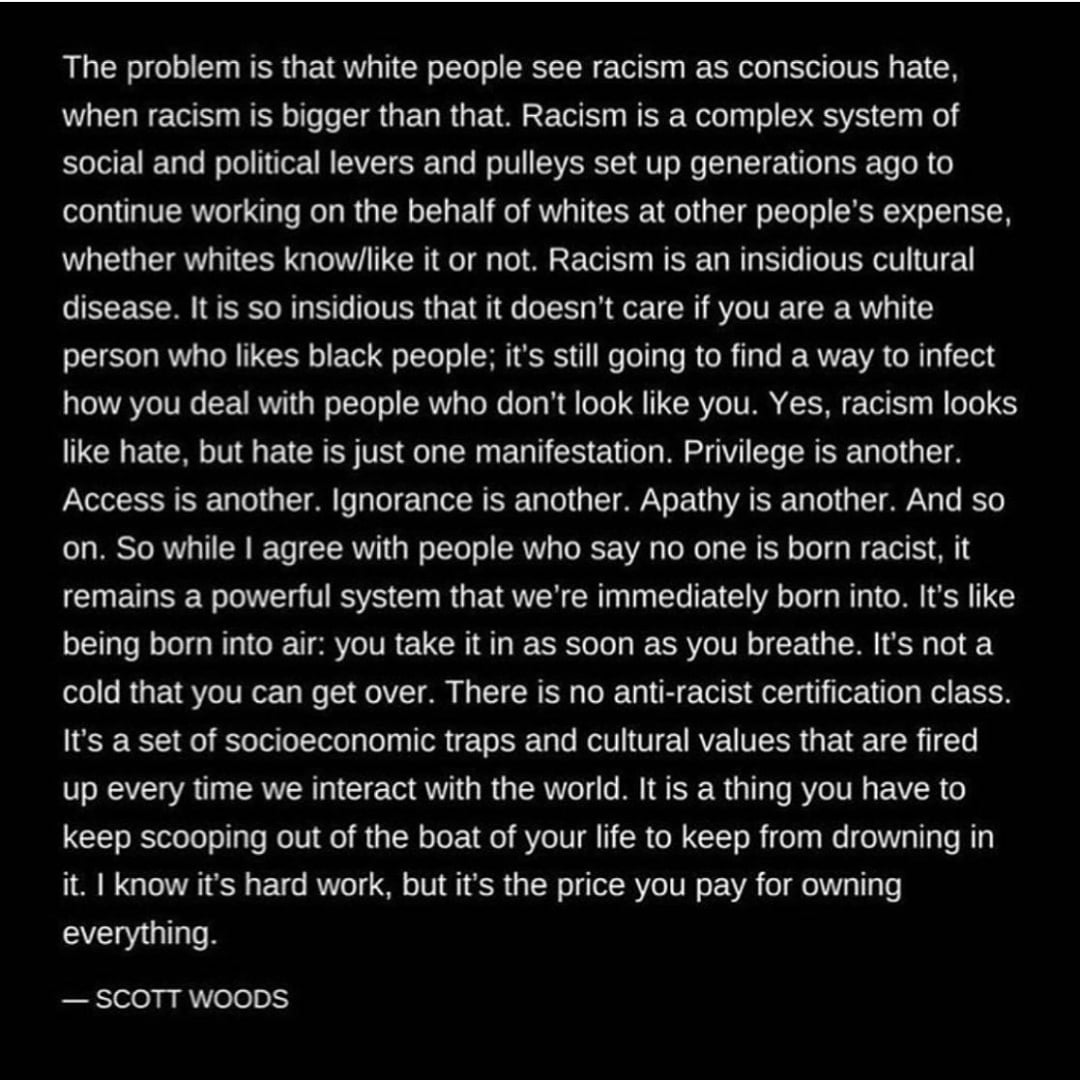We’re enjoying a brief summer reprise in Ireland at the moment with glorious sunny days and temperatures hitting 25 degrees, so I have to pinch myself to remember that Autumn is just around the corner. In between ice-creams and siestas, I’ve been busy putting together a programme of writing events to help you build your skills and tools whatever stage you’re at on your writing journey.
STARTING TO WRITE?
An all-new 30-day Writing Challenge is planned for November and, after the popularity of Gods and Monsters earlier this year, we’ll be returning to the realm of stories, myths, and dreams to explore the collective unconscious in Shadowlands: Into Darkness. I’m really excited about this one as it’s all about ideas that reverberate at the heart of storytelling, in poetry and prose — more info coming later this month but here’s a sneak peek!
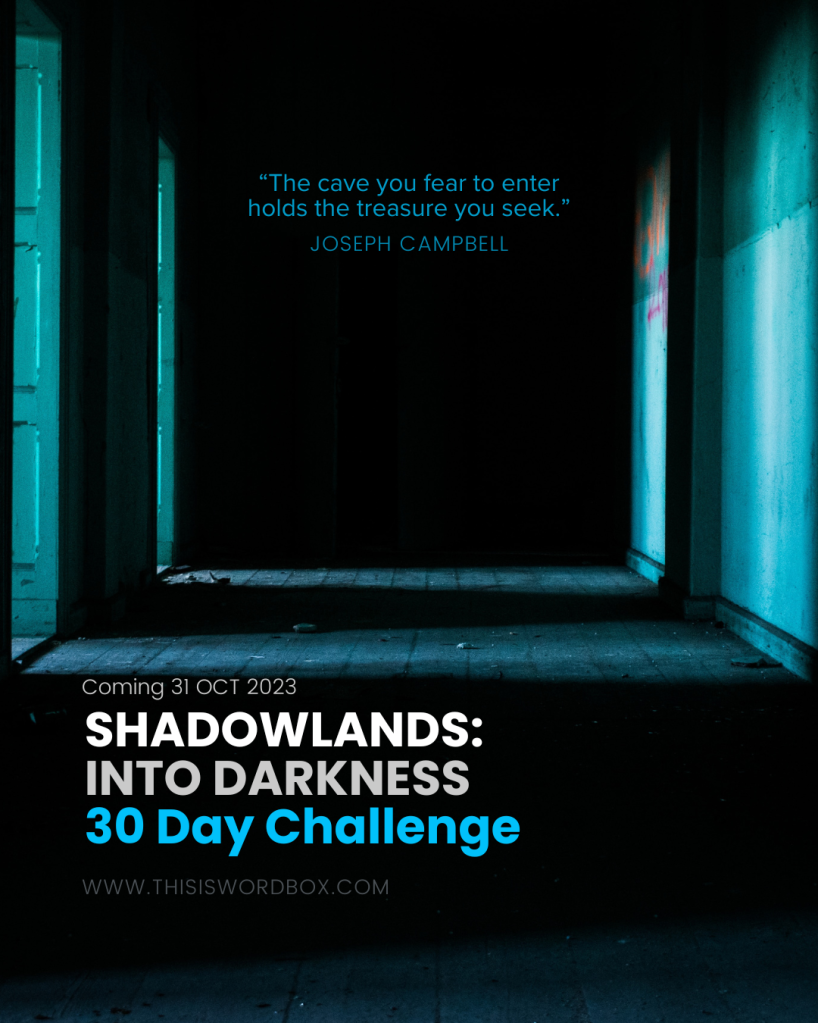
PUBLISHING YOUR WORK?
If you’re sending work out this month, be sure to check out the September poetry and writing calls for submissions list for lots of literary journal, competition, publisher, residency and funding deadlines coming up this month. Although the list is geared toward poetry, it also includes calls for fiction, flash, creative non-fiction, visual art, photography and more.
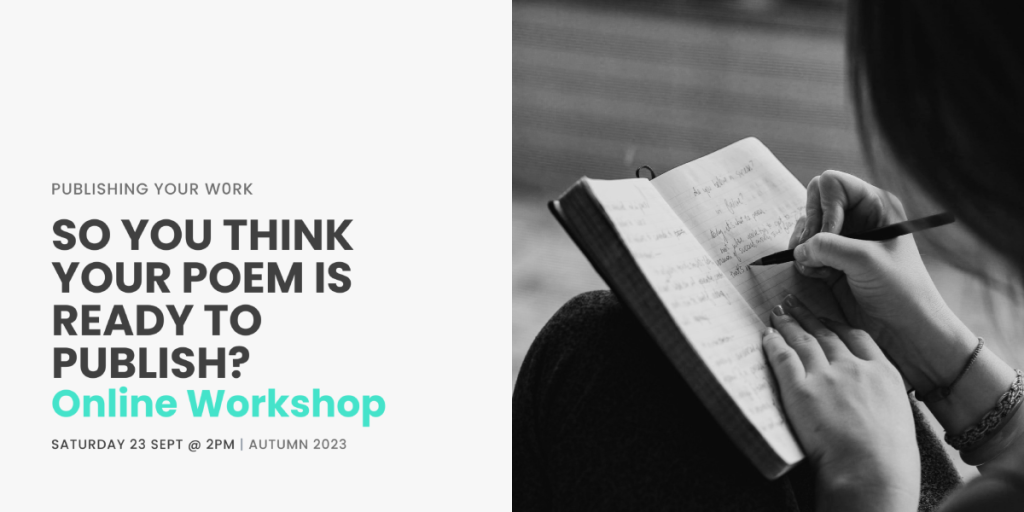
If you are unsure about submitting to journals, So You Think Your Poem is Ready to Publish? is a half-day online workshop to help you see your work through the eyes of an editor and identify those final tweaks that make poems shine!
Date: Sat 23 September at 2pm. Suitable for the emerging / intermediate poet — only 8 spots available. Cost: €39.
It is also perfect if you are interested in Writing Slant | Making a Poem— my six-week online taught course (see below) — you’ll get a brief glimpse of the themes, topics and tools examined more deeply in the longer course. And if you decide to upgrade to Writing Slant after the workshop, the workshop cost will be deducted from the course fee.
DEVELOPING YOUR CRAFT?
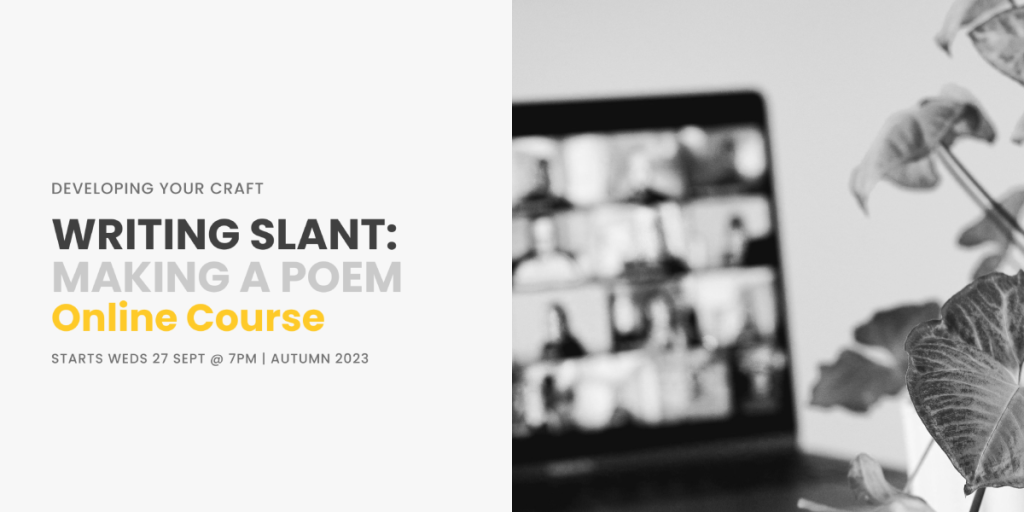
If you’re an emerging poet and want to build your toolbox of skills and techniques, WRITING SLANT: MAKING A POEM is a six-week online taught course that focuses on revising and editing your work for publication. It is ideal for those who have completed a 30-day challenge and would like to learn how to develop those drafts into polished poems. You can also choose to add on a one-to-one mentoring session.
It is the last time the course will be available in this format (and at this price) as I’m planning to revise and update it for 2024. And this weekend you can book at the early bird price of €200 until end of day on Sunday 10 September (GMT+01).
Starts 27 September 2023. Suitable for the emerging / intermediate poet – numbers are strictly limited. Cost: €250.
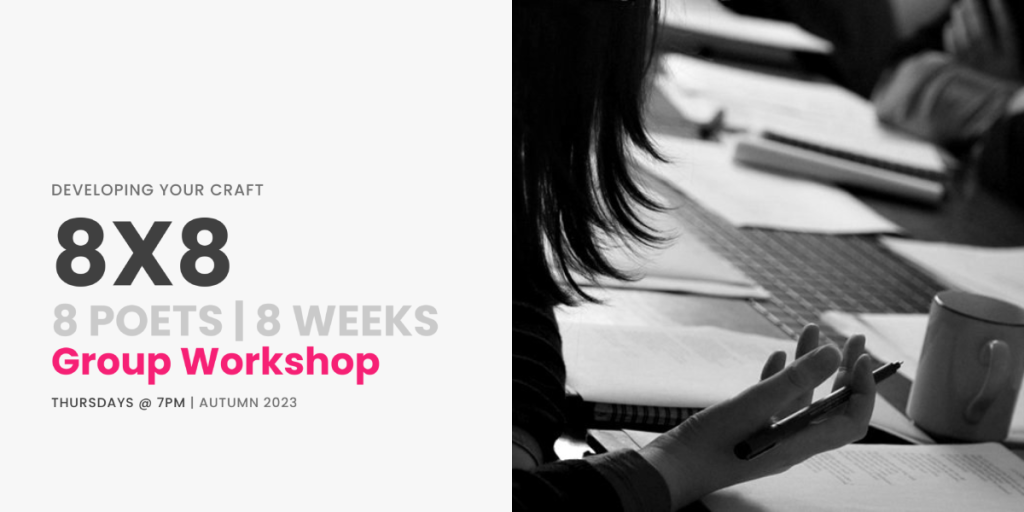
Or if you are looking for a traditional poetry workshop in an online setting to share and receive feedback on your work, then the all-new 8 X 8 GROUP WORKSHOPS — 8 poets x 8 weeks — start on Thursday 21 September at 7pm & Sunday 21 October at 2pm. The groups are small to give everyone a chance to present work each week and are perfect for testing work and finding community.
You can grab a workshop spot for the early bird price of €160 until end of day on Sunday 10 September (GMT+01).
Group workshops start: Thursday 21 September at 7pm & Sunday 21 October at 2pm. Suitable for emerging / intermediate poets – only 8 spots available in each group. Cost: €200.
Payment plans are available for both the Writing Slant course and the 8X8 workshops. If you’d like to arrange that option, or if you’re wondering which event or course would be the best fit for you, just drop me a line and I’ll be happy to help.
